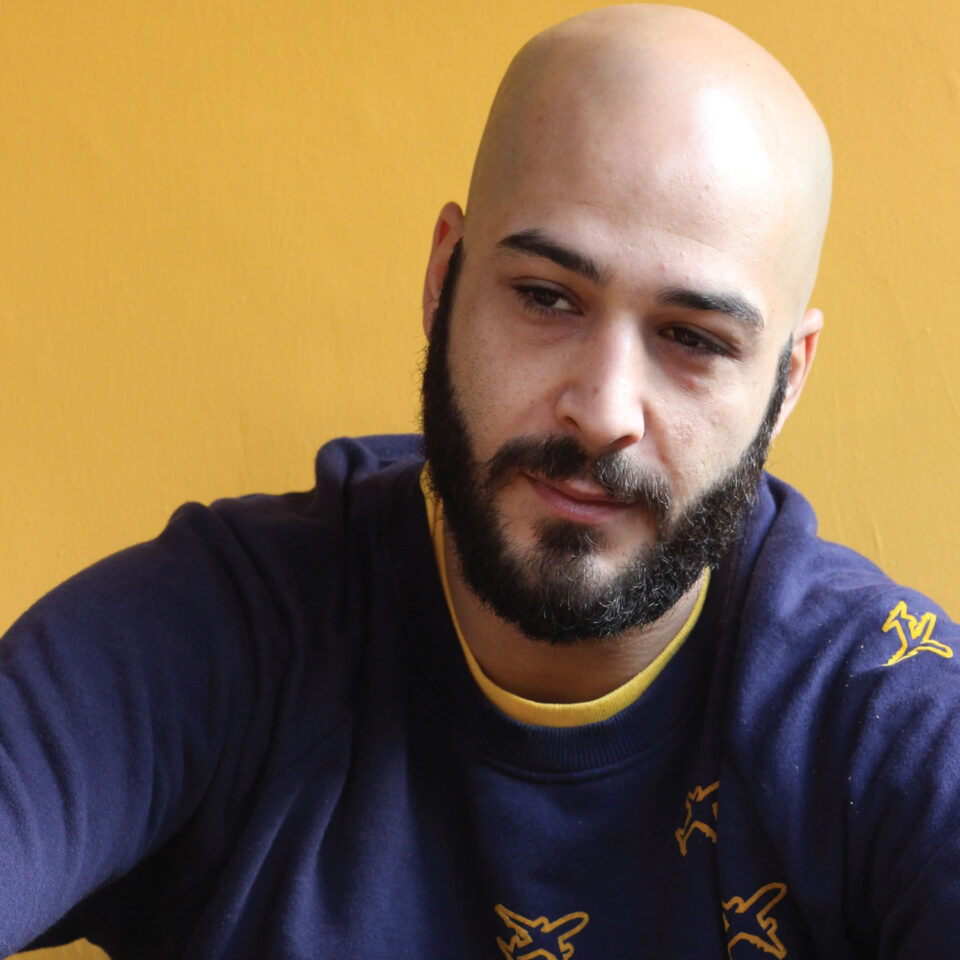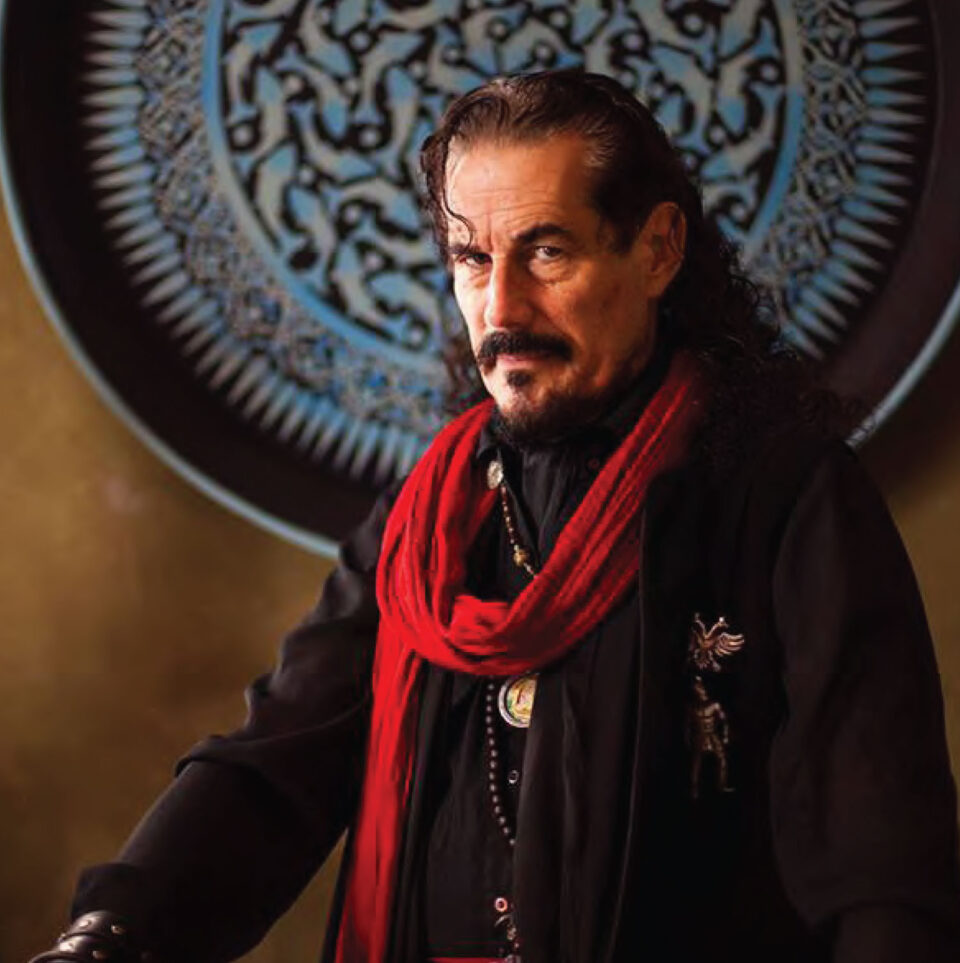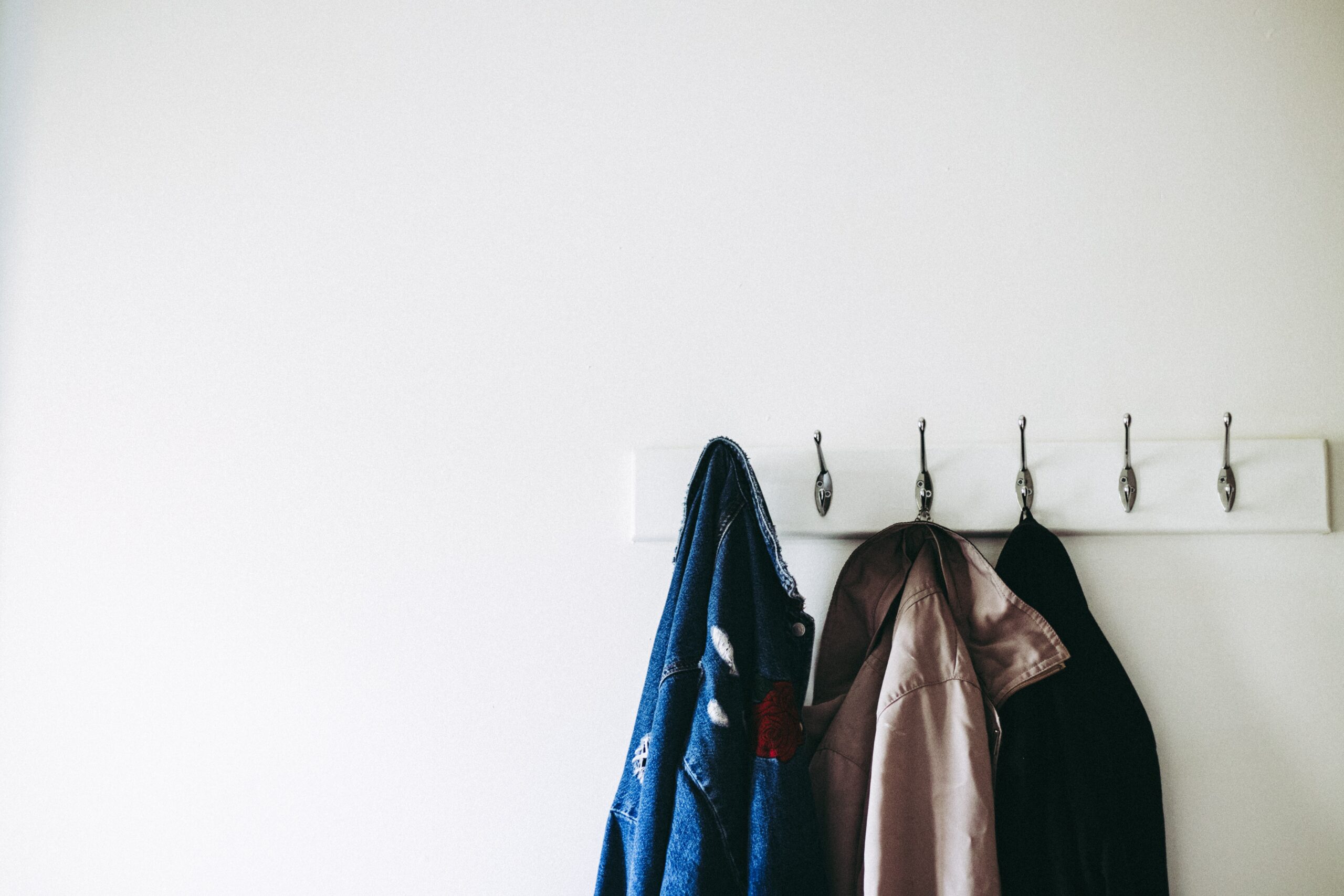An interview with Egyptian rapper Mohammed Eldeeb
Sitting with Mohammed Eldeeb (or just Deeb) all the stereotypes and negative associations about rappers and hip-hop musicians fade away, one at a time. He’s low-key, polite, well-spoken, a history buff, loves to read and write poetry, and he is deeply patriotic.
Intrigued by the rapper before me, I ask him when it all started. “It all began with a French school assignment. I was fourteen years old, and I had always been fond of poetry. Hip-hop was my favorite music, and I used to listen to it all the time.” Instead of submitting a handwritten song, Deeb transformed the school assignment everyone else had submitted on paper into a live show.
“This is when I decided to record my first hip-hop song on tape, and I performed it in class in front of all my friends. Not only did they and the teacher love it, this assignment launched my writing, and I haven’t stopped writing since that day. From that point on, I continued to write hip-hop, mostly in English. It came out so naturally. I could hear the rhythm of the words and imagine the beats, and that’s what it is, hip-hop is poetry over beats.
When I moved back to Egypt in 2005, a second transformation happened. I felt dissociated, and I wanted any Egyptian to be able to listen to my music, understand it, and relate to it. This is when I realized that in order to speak to my people, I needed to speak their language. It was my mother tongue, too, so I needed to try and write in Arabic. So why not try…try to write in Arabic. From that point onwards, Arabic consumed my thinking, I am no longer able to think of the English way of writing. I am so immersed in the Arabic, and feel so challenged by it, that it consumes all my thoughts, so now I no longer feel that English is my forte, although it’s how I started. It’s ironic.”
Deeb explains that this reintegration happened when he returned from the Gulf, and he was going through an identity crisis. He was trying to find a way of coexisting with the reality of Egypt today compared with the Egypt in his mind, or the one he thought existed. This discrepancy, this culture clash, prompted Deeb to want to engage more with the people around him, and he felt a pressing desire to want to pull people out of their apathy.
“I wanted people to think more about the problems that were surrounding them, the country’s problems. Very few people were speaking about the bleak reality, there was a culture of fear predominating, whenever I would ride taxis, the cab drivers would tell me, ‘You know everything you are saying is true, but this kind of talk will land you in jail.’”
Deeb goes on to explain how he could talk openly about what he didn’t like through his songs; he could criticize, and it would force people to look and think about their lives, perhaps maybe change their perspectives. His personal drive was also the need to hear music with a meaning. He felt people wanted to listen to new ideas, new sounds, new voices and that he could fill a void in the market.
“[…] Coincidentally, we released a music video just
a few weeks before the revolution, not knowing that
within days a revolution would take place that would change Egypt forever.”
Deeb clarifies how there are three main components to hip-hop: freedom of expression, puns which are punch lines, and honesty. “People appreciate the honesty that is in hip-hop. They also like to be represented.”
One of his notable songs is called “Belady” (My Country), where he describes all the cities of Egypt from Aswan to Sinai, and what each one is like. The lyrics feature descriptions of the people of these cities, and what they are famous for. In order to create this song, Deeb traveled throughout Egypt, visiting all these places. He was inspired by the local traditions and folklore unique to each area. “Most Egyptians don’t know their own country. They travel abroad, but they don’t visit their own country, they are ignorant about our richness, our diversity, our colors.”
From 2005 to 2010, Deeb was producing music, touring, and entering hip-hop competitions, but it wasn’t until the release of Massrah Deeb (The Theater of Deeb), his first solo album, that his career skyrocketed. This song and album also launched Deeb’s international career and made him get noticed as a successful artist outside the Arab world. “I released my first album that year as a solo artist in December 2010. It was my first showcase to the world. Coincidentally, we released a music video just a few weeks before the revolution, not knowing that within days a revolution would take place that would change Egypt forever.”
Massrah Deeb
Wa’qtee badahee
Sacrificing my time
Sha’bee bassahi
Waking my people
El-microphone sahbee
My mic is my friend
Beya’daar sarahty
That appreciates my honesty
Ma’a bakoun ’alla rahti
With it I am at ease
El haya nokta
Life is a joke
Ahlan beek fee Massrah Deeb
Welcome to the Theater of Deeb
Deeb says about the album, “Massrah Deeb was a very personal take on things that I saw around me, certain incidents and pop culture. During the revolution and that whole year, a lot of people saw the music video and circulated it, and that’s how I got my first exposure. Although it was through a video that went viral, I believe that music and art generally should be experienced live, in the flesh. These days, people get satisfied by seeing the music online, and miss out on the live experience. It’s one of the negative repercussions of this internet age, that people become lazy and substitute the real experience with their home screens. People now get bored very easily. I miss the age when people would listen to a whole album; where every track was there for a reason; where music was guided not by a one-hit-wonder that sells, but by a complete product: the art on the cover, the lyrics, the music, and the direction. Artists are very powerful and I, for one, really appreciate the real experience from the first to the last track.”
Deeb’s success comes after many struggles. He was a member in two bands, before finally starting his solo career. He even has a song called “Fourth of December” that talks about these changes. He invited both bands to participate in the music video that explained this transition from group performer to solo artist. He is still on very good terms with them but felt that this decision was for the best. “I feel very limited within a group, and I’m a perfectionist; I had creative differences with Asphalt. We had different perspectives on sound esthetics.” Deeb was with Asphalt from 2005 to 2008, and it was with this quartet, that he had his largest concert ever at the Chinese Garden of the Cairo International Conference Center, where a crowd of fifteen thousand came to see their favorite bands perform at the Vodafone-sponsored Save Our Souls concert.
From 2008 to 2010, Deeb performed with Weghet Nazar, a duo formed with one of the members of Asphalt. It was with this band that Deeb entered the MTV Arabia Hip-hopNa show. Hip-hopNa, means “Our Hip-hop” in Arabic and was a hip hop talent-scouting program. Both Weghet Nazar and Asphalt won from Egypt. “When they found out the story about how we were initially one band, they asked us to perform together in the awards concert in Dubai. Although we reconciled and agreed to perform for that competition as the quartet Asphalt, after Dubai we went our separate ways.”
Deeb has been a solo artist since 2010, and he is currently working on releasing his third album and feels very confident that he has now found his place in music. He self-translated all his lyrics so that when he performed abroad in Europe, people could read his lyrics; sometimes there were subtitles on the screens, or handouts, or the translations were published in book compilations that were created by the festival organizers.
As a solo artist, Deeb has performed in many countries around the Arab world including the United Arab Emirates, Jordan, and Lebanon. However, Berlin was his first festival abroad, “It was very important; there were lots of journalists and critics. It was a great publicity opportunity for me. People were really interested to know our story in Egypt, the story of the real people, not just what’s on the news. What the perspective is from the artist’s point of view. The Germans were very keen to understand us on a deeper level.”
The Berlin Poetry Festival was Deeb’s first breakthrough in Europe and that opened up a whole series of literary events like the Frankfurt Book Fair, the Stockholm Poetry Festival, and Southbank International Poetry Festival. At all events, Deeb performed in Arabic; occasionally he would include a verse in English but almost always the performances were completely in Arabic.
The most memorable concert, or the one that affected Deeb the most, was his New York concert because New York is the birthplace of hip-hop. “It was challenging, rewarding, and humbling all at the same time. Being valued and acknowledged there meant the world to me.” The performance hosted by the Brooklyn Academy of Music at the Howard Gillman Opera House was unforgettable. The sold-out show brought together over two thousand people. The Brooklyn Academy of Music had invited hip-hop artists from throughout the Arab region including Shadia Mansour, a very strong female rapper from Palestine, and The General from Tunisia.
The second most noteworthy event for Deeb, was being chosen to be a speaker at a Google+ event called the Hip-hop Debates, which was hosted in June 2012, in London. Intelligence Squared, teamed up with Google for an event at the Barbican, debating whether hip-hop enhances society by empowering people or denigrates them. The panel had people from all over the world from diverse backgrounds: academics such as college professors who teach African Studies, musicians, artists, and performers. “I couldn’t believe that I was on the same panel as famous hip-hop musicians that I had looked up to my whole life. That was an accomplishment, and to represent my country at such an event was a great feeling.”
These debates centered on how hip-hop had so many negative connotations, like drugs, cars, girls, language, bling. At the debate, Deeb argued that this was only the case for commercial hip-hop, and that the origin of hip-hop was underground and completely different than what is mainstream today. Authentic hip-hop is about respect, women’s rights, a voice for the suppressed. The constant use of words like “bitch” was also discussed in the debates. Deeb clarified that “this is what turns people off from hip-hop. The problem today is that no one wants to promote good artists, good music, conscience music; producers want guaranteed hits, they don’t want to take risks—sex sells.” Deeb felt that hip-hop shouldn’t be blamed; it’s a reflection of society at large, “Look at movies, books, it’s the same shallowness, and vulgarity that sells. By the way, our side won.”
Deeb’s music tastes are diverse; Latin, Afro, Jazz, Reggae, Blues. He collects vinyl records of all these music genres, and of course hip-hop records, as well. He mainly listens to English hip-hop. According to Deeb, one of the best hip-hop artists at present is Phonte with a group called Little Brother, “What I love about him is how he takes on issues; it’s not just a reiteration of what’s happening, that’s the news. His music and lyrics are a very personal point of view; this is my favorite type of music, it reaches the soul.”
When I ask him about Eminem, he explains that he liked him but that lately his sound had become too grainy, too techno. “I like harmony, and I don’t like techno and house music. It’s all about what your ear is used to hearing or listening to.”
I ask him about the Egyptian hip-hop scene where there seems to be an influx of rap and techno. Deeb explains that there are various genres within rap and hip-hop, and each one has a style, structure, and rules. On the Egyptian scene, there are definitely some talented artists, however, they need to be directed, trained, and developed. The aim is to try and come close to authentic hip-hop by recreating flow, style, and structure. When I ask what Deeb specifically thinks of electro-sha‘bee, he says, “I respect electro-sha‘bee (heavily autotuned singing) because of its reach. I can appreciate their struggle, they are the MCs and they are able to be everywhere. Perhaps the most interesting artist is Sadat. I like his words, but in general, I don’t like this style of music, it’s too noisy, too much base.”
How about Mekki? For Deeb, Mekki is like the Will Smith of Egypt, he’s an actor and a rapper. He’s very hip-pop. What’s good about him is that he spreads awareness of rapping. Deeb also thinks that there is still too much ignorance of rapping and too much garbage music on the radio. Renowned artist Helmi Bakr wrote a very alarming article claiming that all rappers have psychological problems, and that they can’t sing, that’s why they rap. Deeb finds this extremely offensive and inaccurate and thinks it shows just how much ignorance there is around the genre.
I ask how Deeb books events. Does he have an agent? He explains that he hasn’t yet found an agent who can represent him properly. He knows that with a proper agent, he can do so much more. Usually, organizers contact him directly on e-mail or Twitter for concerts and events. An agent reaching out for opportunities would be tremendously beneficial for him, however there is a real void in the Egyptian market for agents. “The large music labels aren’t interested in me, they, like in the West, want music that’s a guaranteed sell, and that means pushing only a certain genre, and not taking any risks.”
Deeb’s second album is out now; he self-produced it and contracted a Jordanian designer for the cover art. “I like to produce something of high quality, with impeccable sound. I self-finance and self-distribute. I am not on iTunes, however, I am on SoundCloud, and Bandcamp. All the music is for free, because these days, people don’t pay for music, and I want my music to reach as many people as possible.” One day, “I would love to perform in Brazil, because of the beauty of bossanova, the mix of African and Latin Music. I would also love to perform to Egyptians abroad because I feel that I would be able to fill the void of immigration and help connect them to Egypt.”
On fate and inspiration and being a nerdy fan, Deeb recounts an unbelievable coincidence. He was in San Francisco visiting his uncle and had previously exchanged emails and messages with a hip-hop artist that he revered who also lived there. Deeb knew that the artist was on tour, so it was unlikely that he would be able to meet up with him. He recounts, “I was just walking in the street, there he was, I went up to him, and we talked; it’s a moment that I will remember forever. When we talked about music, it just destroyed all barriers, and we were able to connect on such a deep, meaningful level through the universal language of music. It was so inspirational, and fate sent him my way, to help me continue my journey. Everything happens for a reason. I was equally surprised when a fan drove all the way from Germany to Lyon in France to hear me. The power of music is unparalleled in uniting people.”
Deeb’s passion for hip-hop is palpable. He explains that before hip-hop existed, Sherihan and Salah Jahin created hip-hop. “Think about it, punch lines, rhythm, and pop culture. Hip-hop has the ability to empower society, to bring light to societal issues, minorities, it has a value…Its poetry, humor, and honesty can transform the way you see the world. I would love to own a record company and have my own label, to be able to do workshops and teach kids the essence and beauty of hip-hop: poetry over beats.”








